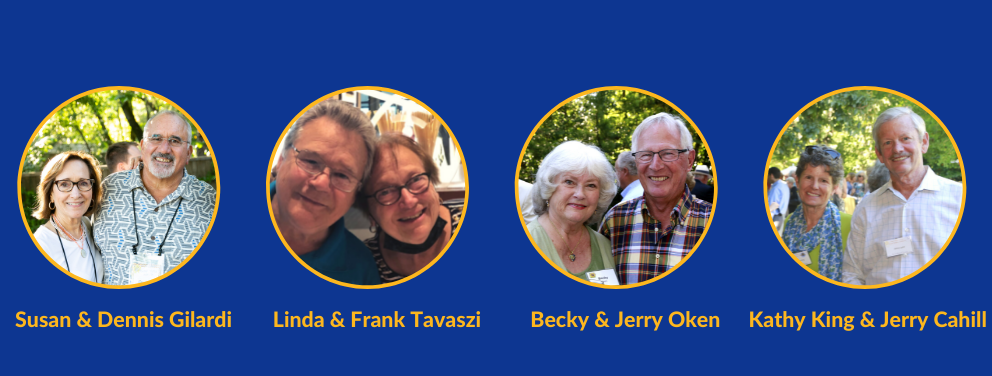
Changing the future of healthcare in Marin: The Campaign’s Leadership Group
It takes a certain type of person. When a predicament is presented, game changers find a way. They are solutiondriven, and no challenge is insurmountable. They perform well under pressure, and they get results. Partly because they’ve been doing it their entire lives – and because they genuinely believe in a cause. They dedicate themselves to a mission. Fortunately for Marin Community Clinics, they’re on our team.
As we launch the Campaign for the Next Decade, we want you to meet our game changers: Kathy King and Jerry Cahill; Susan and Dennis Gilardi; Becky and Jerry Oken; and Linda and Frank Tavaszi. Together, they’re currently focused on one collective goal: raising $8 million to grow Marin Community Clinics’ resilient and responsive health care system to meet the booming demand for our comprehensive services now, and for years to come.
How were you first introduced to Marin Community Clinics?
Jerry Cahill: My mother had worked with Linda Tavaszi for many years in hopes of finding a replacement for the trailers at Marin General Hospital. When the deal with the County came together for what is now the Clinics’ Kerner site, I began working with Linda as well, both on the construction side and later in fundraising.
Susan Gilardi: Dennis and I were introduced to the Clinics by Linda Tavaszi and Grace Hughes, friends whom we hold in high regard. Their enthusiasm was infectious.
Jerry Oken: I was first introduced to the Clinics about 15 years ago by a friend who was employed as a provider there at the time. I was impressed by the work that was being done, and the positive attitude my friend had about the Clinics and everything that the organization was out to accomplish.
What inspired you to take action and not only contribute, but lead others to do the same?
Linda Tavaszi: Contributing both financially and operationally was – and still is – an honor! As the patient population grew, so did healthcare challenges and the ever-increasing need for care. The Clinics has always risen to the challenge. Patients are now served by more than 550 skilled, compassionate, and bilingual staff for all of thier medical, dental, and mental health needs.
Susan Gilardi: What the Clinics were doing just seemed right. Patients can access basic healthcare right in their community, instead of having to travel elsewhere or having to go to the emergency room. As more services were introduced into the Clinics, like radiology and dental care, patients didn’t have to take off work as often to make multiple trips to distant locations.
Jerry Oken: In the years since my introduction, I have seen in detail what the Clinics accomplishes, and the positive attitude of the staff. I am also awarethat the Clinics utilizes all funding efficiently. I know that my contributions, as well as the contributions of others, are used properly and only for good causes.
Why is the idea of more equitable healthcare and a healthier community important to you?
Jerry Cahill: I believe in the Clinics’ holistic model. They offer primary care and prevention, without forcing patients into the hospital system. The Clinics not only helps individuals, they help entire families.
Linda Tavaszi: Equitable and consistent care for all of Marin creates, promotes, and achieves good health and well-being for all. So many community leaders believe that and have a bequest to the Clinics in their estate plan, as do I. May our values prevail and be seen through our generous caring for others!

